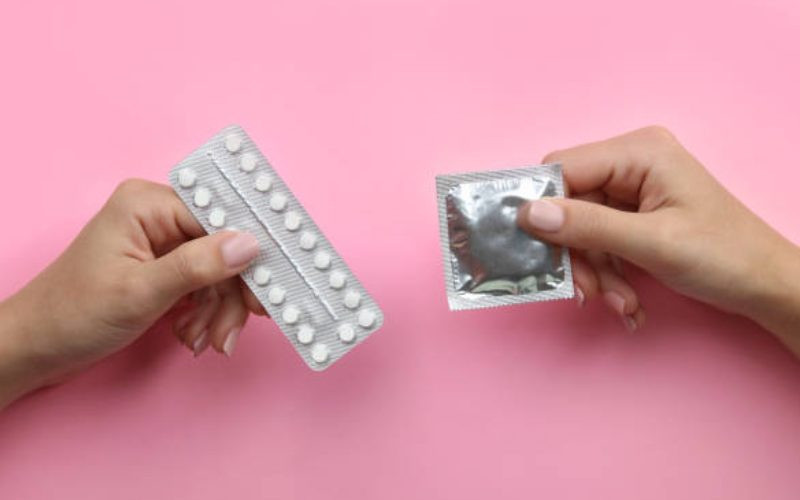
The couple had been celibate before marriage. They were thus looking forward to an explosive bedroom business after abstaining, but alas! the new hubby was a short-distance man and he didn’t know why.
His wife, after persevering for six months was walking out of the marriage. She wanted children, a normal family life, “but this guy cannot have sex.”
Not one to wait for the marriage to crumble after only six months, the hubby checked into a sex clinic to sort out his troubled sex life.
Prof Joachim Osur, a sex medicine specialist, listened to the man in his office and was all too relieved to find a diagnosis: he suffered premature ejaculation (PE) and the better news was that there was a treatment for it.
“Daktari,” the patient pleaded, “could you please call my wife?” he asked Prof Osur. “I left her packing to leave me.”
Though it was too late to save his marriage, the newly-married man is among one in four to five men who suffer premature ejaculation, an undertreated issue in men.
“It is the second commonest problem men face after erectile dysfunction,” Prof Osur says. “Twenty to 25 per cent of men at one time or another face the problem of premature ejaculation.” Some studies put this at 30 to 40 per cent of men.

A study done in Somalia and published in the BMC Urology Journal found that “polygamous men have a lower incidence of premature ejaculation and higher sexual satisfaction than monogamous men,” with a complex bidirectional relationship between PE and erectile dysfunction.
Then there was another male patient with premature ejaculation which prevented him from approaching the prospective girlfriends he was eyeing. At almost 40, pressure from the family to settle down was piling and horrible past sexual encounters were not encouraging.
“When he came, we started working on his problem,” says Prof Osur. “But he disappeared for almost a year but came back to the clinic married and expecting a baby!”
Dr Carol Nthiwa, a urologist at Karen Hospital in Nairobi, says men with PE experience reduced time to ejaculate, lack of control over ejaculation and associated distress from the dysfunction.
“It remains underdiagnosed because of the shame associated with the condition,” she says. “Doctors should have a high index of suspicion, especially in those young men visiting urology clinics.”
Treatment of PE depends on the type. The commonest is where a man is born with the problem (Primary PE), only to find out during the first sexual encounter. Secondary PE, on the other hand, is acquired later on due to underlying biopsychosocial causes.
PE can be mild, moderate or severe-like in cases where the slightest touch of a woman can cause the man to discharge without warning!
“There are others who will try engaging and within a minute or less, they are ejaculating leaving their spouses or partners hanging which is the moderate type. Others ejaculate within one to three minutes, which is a mild form,” explains Prof Osur.
Due to men’s poor health-seeking behaviour and inability to explain themselves, most suffer in silence. Distressed, others opt to steer clear of serious relationships or have multiple partners to cover up the underlying problem of not rising to the occasion.
Societal expectations do not make it easy for men. A single man at 40 or 50 is eyed suspiciously. Is he gay or just irresponsible? Nosy relatives offer all manner of solutions including interdenominational prayers, herbs and sometimes witchdoctors are contracted to find the poor soul a permanent bed-mate.
“I have met men who have gone into depression because the family cannot understand,” says Prof Osur. “They try a relationship and it is shameful, they are left embarrassed.” Men, he says don’t know what to do, and “for sexual problems, people don’t think they should go to hospital and that’s the problem we have.”
Some, he says mistrust sexual medicine specialists like him, wondering whether they are actual medical doctors or herbalists they have unsuccessfully tried before.
Because of the psychological element associated with PE, psycho-social therapy involves one’s partner offering support in treatment. Catherine Holden, a psychologist specialising in addiction, sexuality and relationships says a man can also experience anxiety which is distracting and makes ejaculatory control even harder.
“Understanding our bodies is essential for pleasurable mutual sexual experiences as we need to be conscious over the sensations we are feeling that lead to such a reflex; the same as what we have for urination or defecation,” she says.

When relationships crumble due to PE, couples will publicly give other reasons for the break up avoiding the underlying problem.
Primary premature ejaculation responds to treatment with the right medicine while for secondary premature ejaculation, the root cause is addressed before the man gets a prescription that will prolong the duration of the launch of the soldiers.
More often than not, by the time the man is seeking help from sex specialists the situation is so bad they are eager to have the treatment, including therapy.
“They are usually unsure of whether treatment will work because they have been trying other things which don’t work including from medical doctors who often assure them that the problem is only psychological or just prescribe the Blue Pill,” explains Prof Osur.
He adds that, unlike erectile dysfunction, treatment for PE is ‘complicated’ as therapy is part of it in case of an established relationship as “both partners are equally distressed.”
“Men are impatient, yet treatment is comprehensive,” says Prof Osur. “Sexual medicine is difficult medicine; it is biopsychosocial and you need someone who understands.” He adds that often, men want to try the prescribed treatments alone first, prior to roping in their partners.
Holden says PE affects the quality of life of men and their partners and “more often than not, partners have told their other halves to go and “fix their problem” as it has nothing to do with them; threatening to leave if things don’t change – of which compounds the issue for the man and the relationship overall. And in some cases, men reach out for help for the fear that their partners will leave them.”
Prof Osur’s patient whose marriage collapsed six months after their wedding returned after two months wondering; “Do I start another relationship? And will it work this time round” he is currently a work in progress after starting his treatment.
Studies indicate that patients with lifelong and secondary premature ejaculation (PE) are most likely to benefit from combination therapy of medical psychosexual behavioural therapy and psychological therapy.
The medical treatment involves a prescription pill of Selective Serotonin Re-uptake Inhibitor dapoxetine, which needs to be taken one to three hours before the planned sexual encounter, and no more than one pill in 24 hours.
“This is an on-demand pill,” explains Felister Mwangangi the Country Lead for Menarini Kenya which distributes this treatment for PE. “One should watch out for headaches, nausea, fatigue, reduced sleep and in rare occasions, syncope,” she says of the side effects advising that men should take it with a full glass of water.
The medicine however is contraindicated in people with heart failure, liver impairment, history of fainting, hypomania, and bipolar disorder and it should not be taken with grape juice.
“It prolongs time to ejaculation by three to four-fold,” says Evelyne Makena, Franchise Head for Acute Care at Menarini.
Dr Grace Kanyi, an obstetrician and gynaecologist in Tharaka Nithi says PE is a common problem that leads to frustration around intimacy, saying “couples should have realistic sex goals to manage performance anxiety and other issues that may psychologically affect their sex lives.”
Catherine Holden, a specialist in Addiction, Sexuality & Relationships says that the majority of people learnt about sexuality through watching pornography “which is not a real way to understand pleasure, sex or the enjoyment of it.”

She works with the couples to learn what works for them including some techniques to manage anxiety and stress in healthier ways; focusing on understanding their own inner fears and the psychological conflict that can arise from this.
“As a therapist, I provide a safe and non-judgmental space for men struggling with premature ejaculation to share their experiences,” she says. “With their partners, I encourage them to support the men in their life by being understanding and moving away from putting pressure on them being able to ‘perform’.”
The experts advise men suffering in silence to reach out to certified sex therapists since PE is “also easy to treat with sex therapy treatment protocols, in most cases.”
 The Standard Group Plc is a multi-media organization with investments in media platforms spanning newspaper print
operations, television, radio broadcasting, digital and online services. The Standard Group is recognized as a
leading multi-media house in Kenya with a key influence in matters of national and international interest.
The Standard Group Plc is a multi-media organization with investments in media platforms spanning newspaper print
operations, television, radio broadcasting, digital and online services. The Standard Group is recognized as a
leading multi-media house in Kenya with a key influence in matters of national and international interest.











